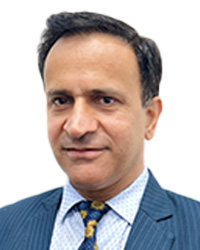Distributed ledger technology-driven alternative investment platforms (DLT platforms) contribute to the inclusive growth of an economy. They attract every level of society, from low and middle to high class. Traditionally, investments requiring large scale funds were limited to high net-worth individuals or HNWI. However, using distributed ledger technology, a large-value asset can be made available as tokens through smart contracts, thus offering fractional ownership to retail and small investors.
Tokens represent ownership in underlying assets and give investors options to invest in a variety of alternative tangibles. Retail investors are enabled to own fractions of the underlying asset and liquidate, that is exit the investments by transferring tokens to new investors.

Partner
Singhania & Co
The asset tokenisation industry is growing rapidly in countries such as Switzerland, Malta and Germany because of their liberal regulatory frameworks. Current and future estimates of the use of DLT in asset tokenisation is very promising. One estimate puts the annual value of investment in DLT in financial services at USD1.7 billion. The World Economic Forum forecasts that 10 per cent of global GDP will be transacted through DLT by 2027. In India, asset tokenisation has huge potential, which can be tapped by providing alternative investment opportunities to many retail investors who primarily invest in traditional modes of investment.
The foreign direct investment (FDI) policy of the Department for Promotion of Industry and Internal Trade, Ministry of Commerce and Industry, allows 100 per cent FDI under the automatic route in e-commerce activities provided, however, that e-commerce entities are working in the marketplace model. An entity works in the marketplace model when the information technology platform it provides on a digital and electronic network acts as a facilitator between buyer and seller. It must not own goods and services, (assets in the context of DLT platforms), to be provided to consumers, (retail investors in the DLT platform context).

Senior associate
Singhania & Co
DLT platforms are useful in creating substantial funds from a large number of retail investors that can be used in various investment avenues, such as high-value commercial real estate, power projects, infrastructure projects, asset leasing, digital gold, artwork and commodities. Investments involving large funds can be financed by incorporating a special purpose vehicle (SPV) that legally owns and manages the underlying asset. The asset is partially owned by retail investors and generates returns for them. The investment of small funds, on the contrary, can be undertaken on an individual basis without having to incorporate an SPV.
In India, there is no law expressly governing the operation of DLT-based alternative investment platforms. However, in providing investment avenues to retail investors, the platforms should bear in mind relevant legislation and regulations such as the Securities Exchange Board of India (SEBI) Real Estate Investment Trusts Regulations, 2014, the SEBI Alternative Investment Fund Regulations, 2012, the SEBI Infrastructure Investment Trusts Regulations, 2014, the SEBI Collective Investment Scheme Regulations, 1999, and the Banning of Unregulated Deposit Schemes Act, 2019.
Markets for DLT platforms are comparatively quiet. FDI in DLT platforms gives foreign investors an opportunity to tap the uncompetitive but promising markets in asset tokenisation. Liberal FDI norms also provide an opportunity for foreign investors to have absolute control of such business.
Traditionally, FDI meant the introduction of new or advanced technology and capital investment. DLT platforms are more than the introduction of capital investment and technology. They are a new service sector that will accelerate the economic growth of India. The tokenisation of assets offering partial ownership to retail investors through digital tokens is still unregulated in India, there being no law that prohibits this new product.
India, as current president of the G20, champions a vision of “One Earth; One Family; One Future”. The country embraces such oneness not only in spirit but also to the letter. It has already allowed FDI in almost every sector. It aligns with the rest of the world in promoting business and commerce, leading to inclusive global economic growth.
Rajiv Sharma is a partner and Shubhangi Goel is a senior associate Singhania & Co.

502, Baani Address One
Golf Course Road, Gurugram
Haryana-122011
Contact details:
T: +91-124-4034756


























